News
-
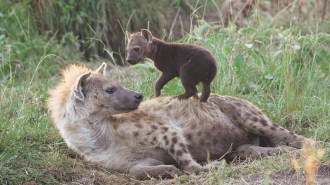 Animals
AnimalsFemale hyenas kill off cubs in their own clans
Along with starvation and mauling by lions, infanticide leads as a cause of hyena cub death. Such killings may serve to enforce the social order.
-
 Health & Medicine
Health & MedicineA man in Hong Kong is the first confirmed case of coronavirus reinfection
During a 33-year-old man’s first round with the virus, he had symptoms, but not the second time — a hint his immune system protected him from disease.
-
 Quantum Physics
Quantum PhysicsA measurement of positronium’s energy levels confounds scientists
A gap in the energy levels of positronium seems to be substantially larger than predicted, and physicists don’t know why.
-
 Health & Medicine
Health & MedicineNew treatments aim to treat COVID-19 early, before it gets serious
Some new drugs that may stop the coronavirus from getting into cells, or from reproducing itself, may treat the illness as soon as it’s diagnosed.
-
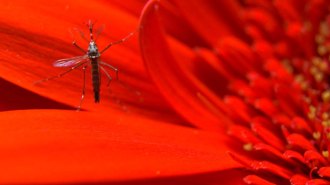 Animals
AnimalsGenetically modified mosquitoes have been OK’d for a first U.S. test flight
After a decade of heated debate, free-flying swarms aimed at shrinking dengue-carrying mosquito populations gets a nod for 2021 in the Florida Keys.
By Susan Milius -
 Astronomy
AstronomyCheck out the first-ever map of the solar corona’s magnetic field
Solar physicists watched waves in the sun’s corona to map the whole corona’s magnetic field. Future observers could use the same technique to predict solar eruptions.
-
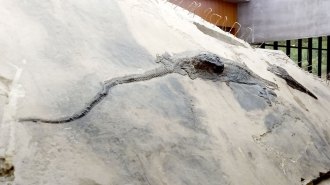 Paleontology
PaleontologyThis ichthyosaur died after devouring a creature nearly as long as itself
Ichthyosaurs, marine reptiles generally thought to munch on soft prey like cephalopods, may have chowed down on fellow big marine reptiles, too.
-
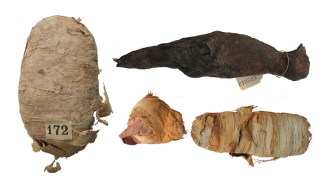 Archaeology
ArchaeologyX-rays reveal what ancient animal mummies keep under wraps
A new method of 3-D scanning mummified animals reveals life and death details for a snake, a bird and a cat.
-
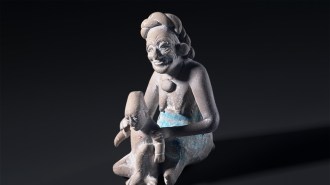 Humans
HumansAncient sculptures hint at universal facial expressions across cultures
Interpreting the emotions carved onto sculptures from long ago offers a new way to study how humans perceive facial expressions.
By Bruce Bower -
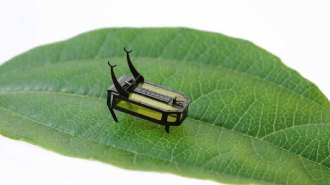 Tech
TechMethanol fuel gives this tiny beetle bot the freedom to roam
A new robot insect uses energy-dense methanol as fuel, not batteries. It could be a blueprint for future search-and-rescue bots with long run times.
By Carmen Drahl -
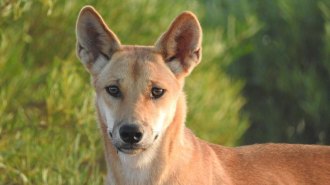 Animals
AnimalsCulling dingoes with poison may be making them bigger
Meat laced with toxic powder has been used for decades to kill dingoes. Now, dingoes in baited areas are changing: They’re getting bigger.
By Jake Buehler -
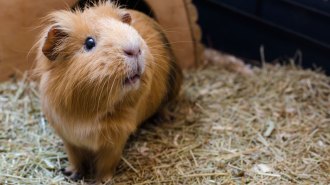 Health & Medicine
Health & MedicineDust can spread influenza among guinea pigs, raising coronavirus questions
In three out of 12 guinea pig pairs, an animal coated in influenza virus, but immune to infection, spread the virus to another rodent through dust.